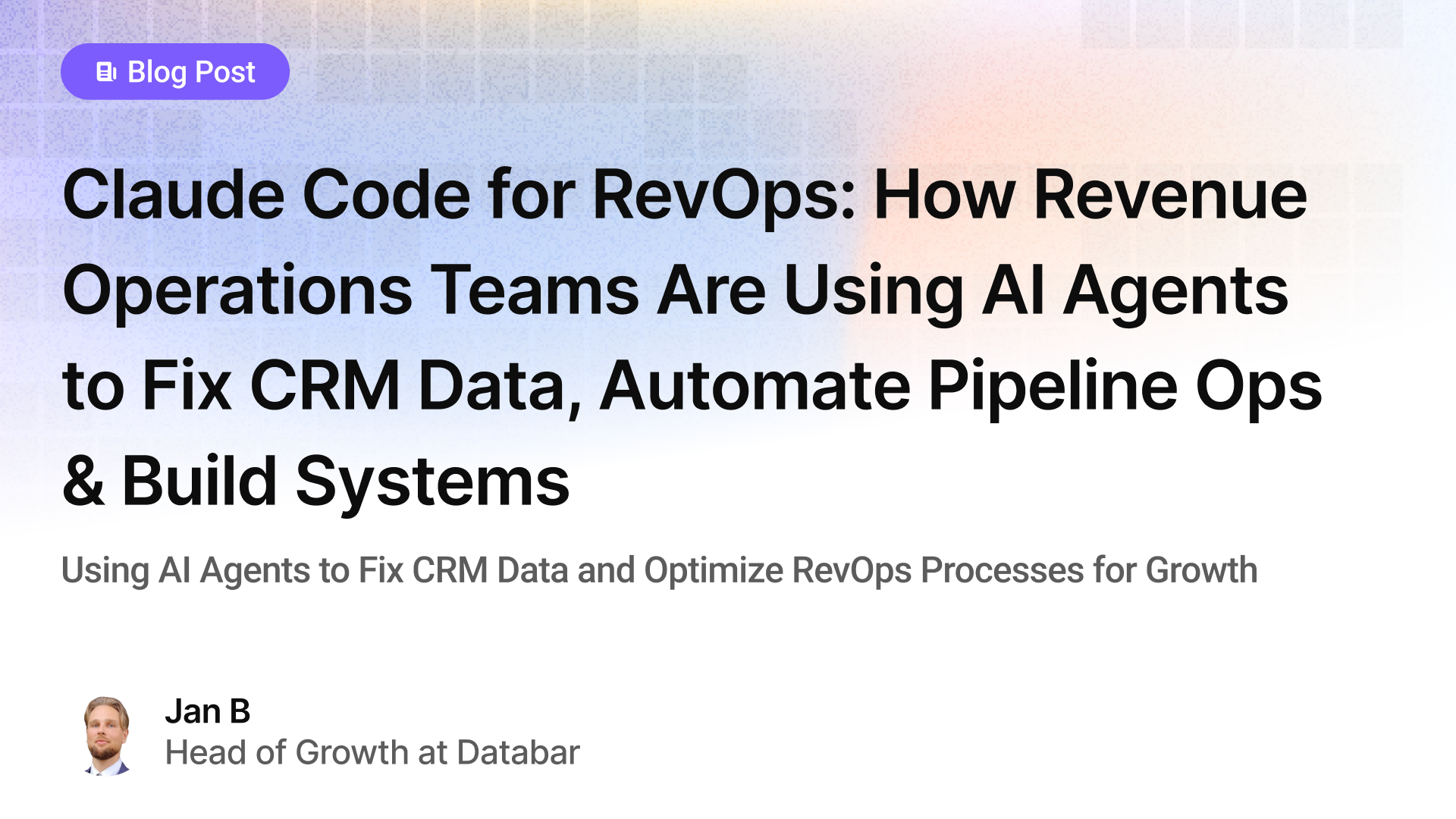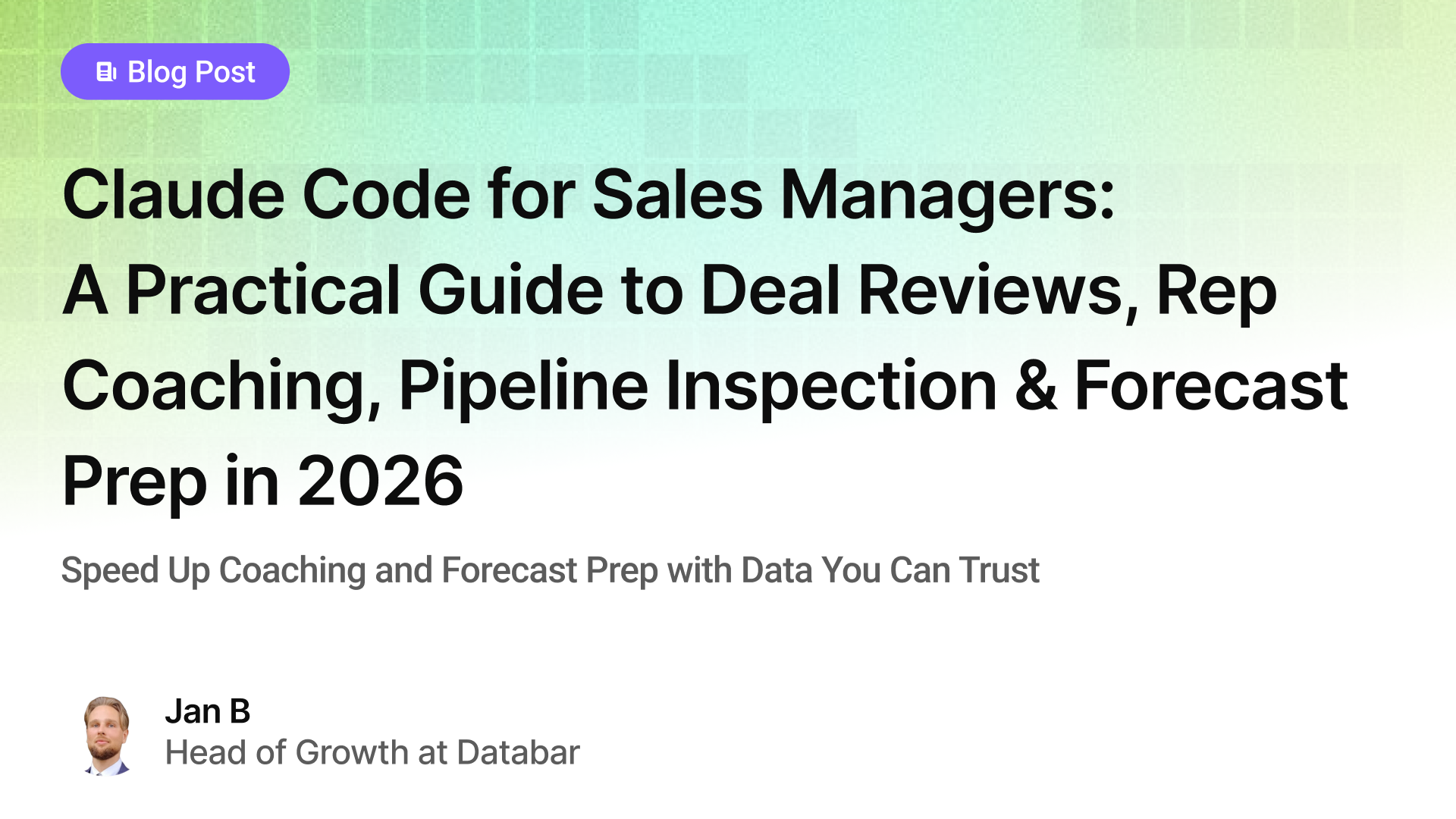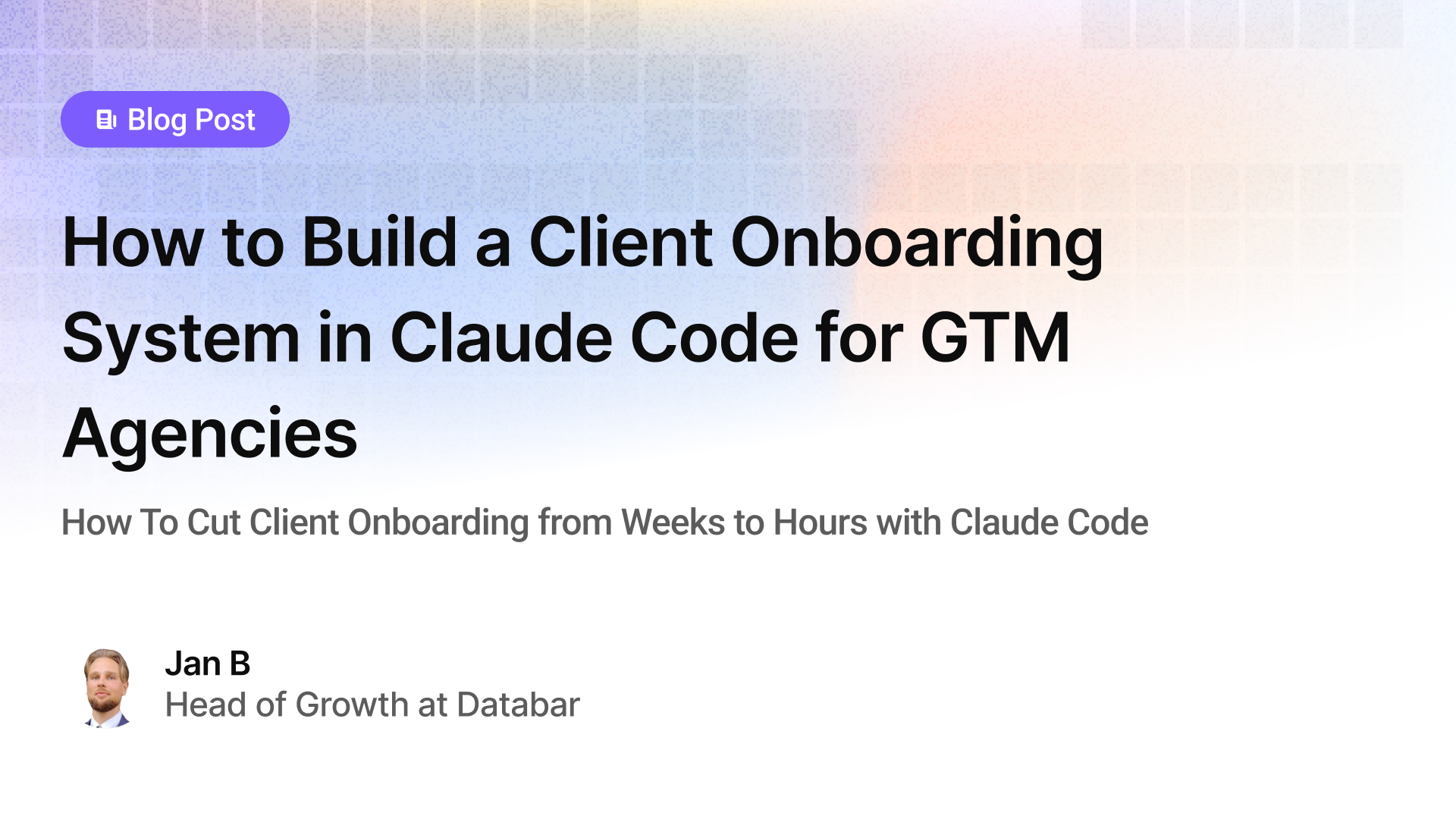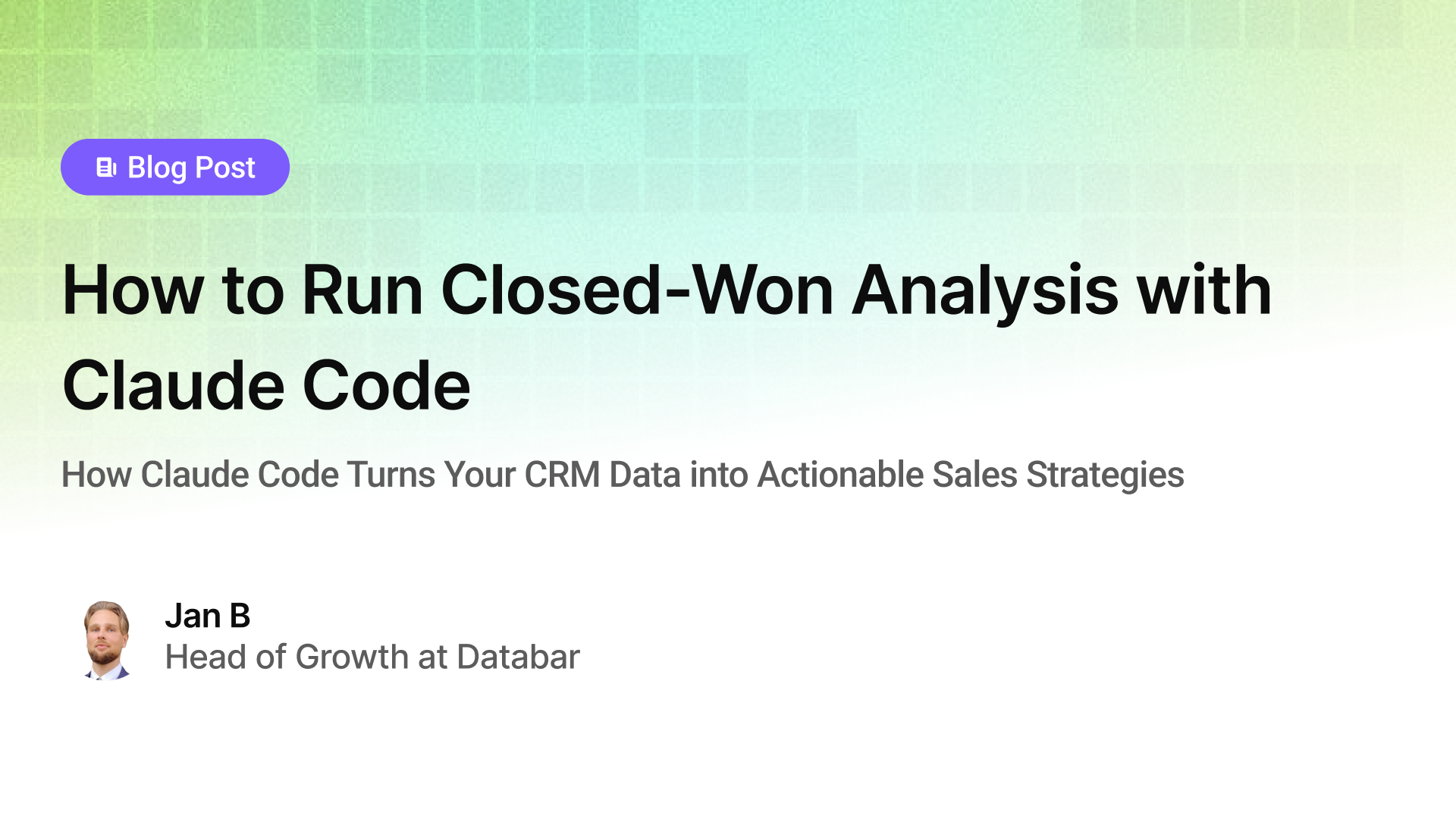SDR Career Path: From Entry Level to Sales Leadership
"Your Step-by-Step Guide to Building a Successful Career in Sales Development
Blogby JanMay 23, 2025

The SDR career path has become the most reliable entry point into high-earning sales positions, with 78% of successful Account Executives starting in sales development roles. Yet many professionals don't fully understand the incredible progression opportunities available or how to optimize their journey to sales leadership.
Many first-day SDRs transform into confident sales leaders earning six figures within just 18-24 months. The key? Understanding not just what SDRs do day-to-day, but how each skill you develop builds toward rapid career growth.
In this guide, you'll find the complete SDR career path from day one through senior leadership positions, with specific strategies that work time and again to accelerate advancement. Whether you're considering your first SDR role or looking to level up from your current position, you'll discover exactly how to maximize your career trajectory.
What Makes the SDR Role So Valuable for Career Growth?
The SDR role has evolved dramatically from its cold-calling origins. Today's Sales Development Representatives serve as the critical bridge between marketing-generated interest and sales-qualified opportunities, making them essential to modern B2B growth strategies.
Many people think SDRs just make calls and send emails. That's far from today's reality.
Modern SDRs:
- Conduct deep market research
- Analyze prospect companies
- Develop personalized messaging strategies
- Build relationships that support complex B2B sales processes
- Gather competitive intelligence
- Develop customer personas
- Optimize sales processes that directly impact revenue
This expanded scope creates natural progression paths into various business functions beyond traditional sales roles.
Breaking Into Your First SDR Position: What You Need to Know
Landing your first SDR role might seem intimidating, but people from wildly diverse backgrounds—from teachers to baristas—often excel in sales development.
What Hiring Managers Actually Look For
Forget what you've heard about needing prior sales experience. What truly matters is demonstrating:
- Communication abilities: Can you clearly articulate ideas?
- Research skills: Can you find relevant information about prospects?
- Technology comfort: Can you learn new tools quickly?
- Goal achievement: Can you show examples of persistence in achieving results?
Many successful SDRs come from unexpected backgrounds. For example, former teachers often excel by highlighting how they tracked student progress, developed personalized learning plans, and consistently achieved classroom goals.
Standing Out in Your Interview
The interview process for SDR positions typically involves demonstrating your research abilities and communication skills. Here's how to shine:
- Research the company's customers, products, and competitive positioning
- Prepare specific questions that show genuine curiosity about their challenges
- Practice articulating how your past experiences translate to sales development
- Show enthusiasm for learning and growth rather than claiming to know everything
Most hiring managers value curiosity and coachability over previous sales experience for entry-level positions.
Mastering Core SDR Skills: Your First 90 Days
Success in your initial SDR role requires developing specific competencies that determine both immediate performance and long-term advancement potential.
Prospecting Like a Pro
Prospecting isn't just about finding contact information—it's about identifying ideal prospects likely to benefit from your solution. This involves:
- Learning to analyze company backgrounds
- Understanding organizational structures
- Identifying decision-makers within target accounts
- Recognizing buying signals that indicate receptiveness
The most effective SDRs spend dedicated time studying top customers to understand what makes them successful with the product. This helps identify similar prospects and significantly improves conversion rates.
Communication That Converts
Modern SDR skills extend far beyond basic outreach. You'll need to master:
- Email writing that generates responses
- Phone conversations that build rapport
- Social media engagement that adds value
- Discovery questions that uncover real needs
The fastest-advancing SDRs treat every customer interaction as a chance to learn, not just an opportunity to book a meeting. They ask thoughtful questions and genuinely listen to the responses.
Technology That Amplifies Results
Modern SDR success increasingly depends on tech proficiency. This includes mastering:
- CRM systems
- Email automation platforms
- Social media tools
- Data analysis capabilities
How Modern Tools Are Improving the SDR Career Path
For sales development representatives looking to accelerate their career progression, mastering efficient data tools becomes essential. Modern data platforms address the number one productivity challenge most sales teams face: manual research.
Eliminating Research Bottlenecks
The average SDR spends 30-40% of their day on manual research - looking up company information, finding contact details, and gathering intelligence before making the first contact. This creates a significant bottleneck in productivity and limits the number of quality conversations SDRs can have each day.
Advanced data enrichment platforms like Databar.ai now provide access to multiple premium data sources through a single interface. Instead of jumping between LinkedIn, company websites, data providers, and social media, SDRs can:
- Find verified contact information for decision-makers
- Access detailed company profiles including size, funding, and technologies used
- Identify buying signals that indicate when prospects are ready to engage
- Build targeted prospect lists based on specific criteria
AI-Powered Prospecting Intelligence
What sets modern data platforms apart is their AI-powered analysis capabilities. These tools don't just provide raw data - they deliver actionable intelligence that helps prioritize outreach efforts.
For example, leading systems can automatically:
- Analyze a prospect's recent LinkedIn posts to suggest personalization angles
- Compare a target account against your best customers to identify similarities
- Extract insights from company news to highlight relevant conversation starters
- Generate personalized email openers based on prospect information
Building Advanced SDR Skills
SDRs who become proficient with advanced data tools demonstrate the strategic thinking and results orientation that hiring managers look for when evaluating promotion candidates. By mastering data-driven prospecting, they:
- Complete more outreach with higher personalization
- Develop deeper market and competitive knowledge
- Show measurable improvements in conversion rates
- Free up time to focus on relationship-building skills
Many top-performing SDRs report that using integrated data platforms helped them exceed quota by 20-40%, creating advancement opportunities much faster than peers using traditional research methods.
From SDR to AE: The Data Advantage
When preparing for the transition to Account Executive, having access to comprehensive data provides critical competitive intelligence that can help SDRs understand the broader business landscape their prospects operate in. This deeper knowledge helps develop the consultative selling skills needed for AE success.
Data mastery becomes even more valuable as SDRs move into closing roles, providing intelligence on deal stakeholders, company priorities, and competitive positioning that informs strategic account planning.
The Critical Transition: SDR to AE Journey
The SDR to AE transition represents the most significant career advancement opportunity in sales development, typically resulting in 50-100% compensation increases alongside expanded responsibilities.
When Are You Ready?
Most successful transitions occur after 12-18 months of strong SDR performance. You're likely ready when:
- You consistently exceed your meeting quotas
- You understand the product and customer needs deeply
- You've developed strong presentation and objection handling skills
- You can manage complex sales conversations
Internal vs. External Advancement
Advancement happens both ways. Internal promotions typically offer better support and training, while external moves sometimes provide faster advancement. Here's what to consider:
Internal Advancement Pros:
- Familiarity with products and processes
- Established relationships with team members
- Clear understanding of customer challenges
- Often stronger support during transition
External Advancement Pros:
- Sometimes faster timeline to promotion
- Potentially higher compensation jumps
- Opportunity to expand industry experience
- Fresh start without preconceptions
Preparation Strategies That Work
The best SDR to AE transitions happen when you're actively preparing before the opportunity arises:
- Shadow current AEs - Ask to join their calls and meetings
- Take on stretch assignments that demonstrate closing abilities
- Study the full sales process beyond the SDR portion
- Build relationships with sales leaders who make promotion decisions
- Develop deeper product knowledge than required for your current role
Volunteering to help with product demos months before you're ready for promotion can demonstrate those skills to decision-makers.
Account Executive Excellence and Beyond
Success as an Account Executive creates additional advancement opportunities into senior sales roles, management positions, and specialized functions.
AE Performance Optimization
AE success requires different skills than SDR excellence, including:
- Complex deal management
- Multi-stakeholder relationship building
- Strategic account planning
- Forecast accuracy
- Expansion and retention strategies
The most successful AEs master the art of "solution selling"—focusing on business outcomes rather than product features. They consistently achieve quota by understanding their customers' industries deeply and becoming trusted advisors.
Specialization Opportunities
As you progress in your SDR career path, you may discover specialization opportunities that align with your strengths:
- Vertical market focus (becoming an expert in healthcare, finance, etc.)
- Product specialization (focusing on specific solutions)
- Geographic territory management (developing expertise in specific markets)
- Enterprise sales (handling larger, more complex deals)
Specialization often leads to higher earning potential and unique advancement opportunities.
Leadership Track: From Individual Contributor to Manager
The management track represents one of the most attractive advancement paths for sales development representatives, offering the opportunity to build teams while developing strategic business skills.
What Makes a Great SDR Manager?
Great SDR managers combine:
- Coaching abilities - Helping others improve their skills
- Strategic thinking - Understanding market dynamics and team positioning
- Performance management - Setting appropriate goals and tracking progress
- Talent development - Identifying and nurturing future leaders
- Cross-functional collaboration - Working effectively with marketing, product, and senior leadership
The most effective SDR managers continue to demonstrate the skills they expect from their teams. They can still pick up the phone and show how it's done rather than just talking about it.
From Management to Executive Leadership
The SDR career path can eventually lead to executive leadership positions like:
- VP of Sales
- Chief Revenue Officer
- Chief Operating Officer
- Chief Executive Officer
Many successful executives started in sales development roles because they developed a fundamental understanding of customer needs and market dynamics that informed their strategic thinking.
Alternative Career Paths: Beyond Traditional Sales Roles
The SDR career path isn't limited to traditional sales progression. The skills you develop create opportunities in various business functions.
Sales Operations
Sales operations roles leverage analytical skills developed in sales development while focusing on:
- Process optimization
- Technology implementation
- Performance analysis
Analytically-minded SDRs often transition into sales operations roles where they thrive by optimizing the very processes they once followed.
Marketing
Marketing roles, particularly in demand generation and marketing operations, benefit from SDR experience with:
- Customer communication
- Lead qualification
- Conversion optimization
Former SDRs who move to marketing often dramatically improve campaign effectiveness by applying their frontline customer interaction knowledge.
Customer Success
Customer success positions utilize relationship building and communication skills developed in sales development while focusing on:
- Customer retention
- Account expansion
- Long-term relationship management
Product Marketing
Product marketing roles value market intelligence and customer insights that experienced SDRs develop through:
- Direct customer interaction
- Competitive analysis
- Messaging optimization
The SDR career path creates foundation capabilities that transfer to numerous business functions beyond traditional sales roles. Technical SDRs often find Sales Engineering roles particularly appealing, combining product expertise with customer-facing responsibilities.
Salary Progression: What to Expect at Each Level
Understanding compensation progression helps sales development professionals make informed career decisions.
Entry-Level SDR Compensation
Entry-level SDR salary typically ranges from $45,000 to $65,000 in total compensation, including base salary and achievable commissions or bonuses. This varies significantly by geographic location, company size, and industry focus.
Experienced SDR Earnings
After 12-18 months of strong performance, SDR compensation often reaches $60,000 to $85,000 total, with top performers in major markets exceeding $90,000.
Account Executive Progression
AE compensation typically ranges from $80,000 to $150,000+ depending on deal size, sales cycle, and territory characteristics. Enterprise AEs in major markets often earn $200,000+ with strong performance.
Management Compensation
SDR management and sales development leadership roles typically offer $100,000 to $200,000+ compensation packages plus equity participation in many organizations.
Career advancement in sales development offers some of the most attractive compensation progression opportunities available in modern business.
Future-Proofing Your Sales Development Career
The sales development field continues evolving rapidly. Here's how to stay ahead:
Adopt Advanced Technology
AI, automation, and data analytics are transforming sales development. Professionals who learn to use these tools while maintaining human relationship skills will have significant advantages.
Modern data tools help SDRs work more effectively by automating research and providing intelligence that informs more strategic conversations with prospects.
Develop Business Acumen
Understanding finance, marketing, and operations helps sales development professionals qualify for senior leadership positions. Read business books, take courses, and seek cross-functional projects that expand your knowledge. For technically-minded SDRs, consider exploring the GTM Engineer transition path that combines sales expertise with technical skills.
Build Your Personal Brand
Creating content, speaking at events, and developing thought leadership helps build recognition beyond your current organization. This creates opportunities for advancement and positions you as an expert in your field.
Final Thoughts: Your Next Steps on the SDR Career Path
The SDR career path offers exceptional opportunities for motivated professionals who combine relationship-building skills with data-driven approaches. Each step of the journey builds valuable capabilities that can lead to various roles across sales, marketing, customer success, and leadership.
Whether you're just starting out or looking to advance to your next role, focus on these key actions:
-
Master the fundamentals - Build strong prospecting, communication, and qualification skills that form the foundation of all future roles
-
Become data-driven - Learn to leverage modern tools that eliminate manual work and provide strategic insights
-
Develop business acumen - Go beyond the SDR playbook to understand how your work connects to broader business objectives
-
Build your network - Connect with mentors, peers, and leaders who can provide guidance and opportunities
-
Track and share your wins - Document your successes and quantify your impact to build a compelling case for advancement
The professionals who advance most quickly are those who treat sales development as a strategic discipline rather than just an activity-based role. With the right mindset and skills, this path can transform your career trajectory in remarkably short time.
Want to see how top-performing SDRs are accelerating their career growth? Try Databar.ai free and experience how eliminating manual research can help you exceed your targets and stand out as a promotion candidate.
Frequently Asked Questions
How long should I stay in an SDR role before advancing?
Most successful SDR to AE transitions occur after 12-18 months of strong performance. However, advancement timing depends on individual skill development, company opportunities, and personal career objectives rather than arbitrary timelines.
What skills do I need to develop for SDR success?
Essential SDR skills include:
- Research and prospecting
- Written and verbal communication
- Qualification questioning
- CRM and technology utilization
- Systematic performance optimization
- Persistence, curiosity, and coachability
How much can I earn as an SDR?
SDR salary varies by location, company, and experience but typically ranges from $45,000-$65,000 for entry-level positions to $60,000-$90,000+ for experienced performers. Top SDRs in major markets often exceed $100,000 total compensation.
What's the difference between SDR and BDR roles?
SDR and BDR roles are often used interchangeably, though some companies distinguish between inbound (SDR) and outbound (BDR) focus. Both involve lead qualification and opportunity development for Account Executives.
Can I advance to management without AE experience?
Yes, many successful SDR managers advance directly from individual contributor roles. However, some sales operations or AE experience often helps with credibility and understanding of the full sales process.
What are the best companies for SDR career development?
Look for companies with:
- Structured training programs
- Clear advancement paths
- Strong mentorship cultures
- Track records of promoting from within
Technology companies and fast-growing organizations often provide the best advancement opportunities.
Related articles

Claude Code for RevOps: How Revenue Operations Teams Are Using AI Agents to Fix CRM Data, Automate Pipeline Ops & Build Systems
Using AI Agents to Fix CRM Data and Streamline Revenue Operations for Scalable Growth
by Jan, February 24, 2026

Claude Code for Sales Managers: A Practical Guide to Deal Reviews, Rep Coaching, Pipeline Inspection, and Forecast Prep in 2026
Speed Up Coaching and Forecast Prep with Data You Can Trust
by Jan, February 23, 2026

How to Build a Client Onboarding System in Claude Code for GTM Agencies
How To Cut Client Onboarding from Weeks to Hours with Claude Code
by Jan, February 22, 2026

How to Run Closed-Won Analysis with Claude Code
How Claude Code Turns Your CRM Data into Actionable Sales Strategies
by Jan, February 21, 2026

